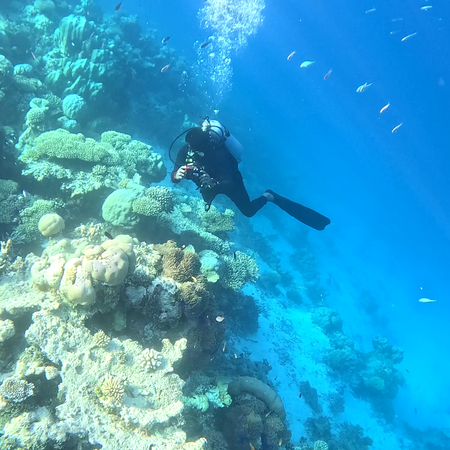
Empowering community-led coral reef restoration and prioritization in the Maldives
This project is funded by CORDAP (Coral Research and Development Accelerator Platform) and represents a collaborative effort between international research institutions and Maldivian organizations to create a sustainable future for coral reef ecosystems.
CORDAP Empowering Community-Led Coral Reef Restoration and Prioritization in the Maldives
Project Overview
Turqoise Lab is proud to be a key partner in this groundbreaking community-based larval coral restoration project that is revolutionizing coral reef conservation in the Maldives. This innovative initiative builds on the pioneering work of Professor Peter Harrison from Southern Cross University, who has developed a revolutionary system that can improve larval production efficiencies by up to 40%.
Project Mission
Our mission is to dramatically increase the scale and speed at which coral reefs can be restored across the Maldives through community-led initiatives, innovative larval restoration techniques, and comprehensive stakeholder engagement across four strategic atolls.
How It Works
Innovative Coral Restoration Process
Gamete Collection: Coral eggs and sperm are carefully captured using fine mesh nets during natural spawning events
Strategic Breeding: Gametes are strategically crossed to generate hundreds of millions of robust, genetically diverse larvae
Ocean Cultivation: Larvae are grown in specially designed ocean pontoons that optimize survival rates
Dual Deployment Strategy:
Direct release of larvae onto degraded reef areas
Settlement of larvae onto rubble and natural limestone tiles before transportation to restoration sites
Growth Monitoring: Continuous monitoring ensures larvae develop into healthy adult corals
Project Partners
This CORDAP-funded initiative brings together a consortium of leading research institutions and local organizations:
International Partners
Professor Peter Harrison (Project Leader) - Southern Cross University
Commonwealth Scientific and Industrial Research Organisation (CSIRO)
University of Queensland
Australian Institute of Marine Science (AIMS)
Queensland University of Technology
Maldivian Partners
Maldives Coral Institute
Maldives Marine Research Institute
Turqoise Lab
Project Locations
The restoration activities are strategically implemented across four key atolls:
Baa Atoll (UNESCO Biosphere Reserve)
Male' Atoll
Laamu Atoll
South Huvadhu Atoll
Environmental Impact
Restoration Scale
Multi-hectare reef restoration plots established
Significantly higher coral settlement rates compared to natural recruitment
Enhanced genetic diversity in restored coral populations
Improved reef resilience against climate change impacts
Long-term Benefits
Restoration of critical marine habitats
Enhanced fish populations and biodiversity
Improved coastal protection for local communities
Sustainable tourism and economic opportunities
Future Outlook
As this comprehensive 3-year project continues, Turquoise Lab remains committed to:
Expanding restoration activities across all four target atolls
Strengthening community partnerships and local capacity
Advancing scientific research and innovation
Sharing knowledge and best practices globally
Building a sustainable model for reef conservation
Power in Numbers
50
Programs
18
Locations
20
Volunteers
Project Gallery





